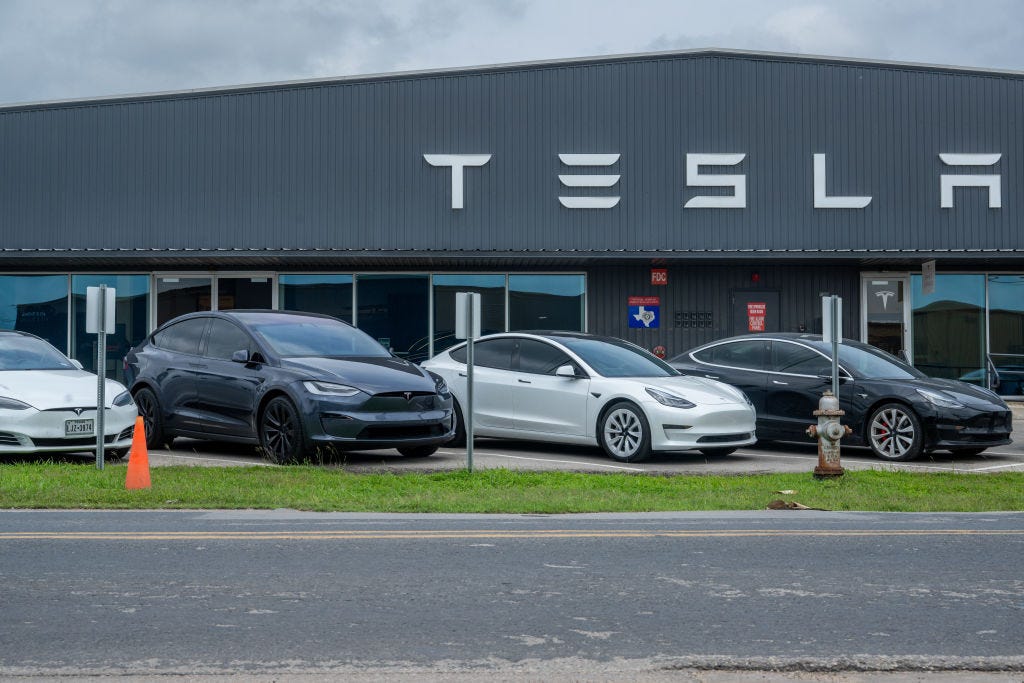- Tesla slashed prices for its Model 3, S, X, and Y in China by $1,930 each over the weekend.
- The wave of price cuts come amid declining sales and heightened competition from its Chinese rivals.
- “Tesla prices must change frequently in order to match production with demand,” Musk said on Sunday.
Tesla, eager to hold on to its market share in China, is amping up its price war against its Chinese rivals amid declining sales.
The electric-vehicle manufacturer slashed its prices in multiple markets over the weekend. In China, Tesla has reduced the price of its Model 3, S, X, and Y by 14,000 yuan, or about $1,930. The Model Y now costs 249,900 yuan.
A similar cut was also applied in the US last Friday, where the Model S, X, and Y were given price cuts of $2,000 each. Prices for Tesla’s new Cybertruck and Model 3 remain unchanged in the US.
Tesla’s moves didn’t go unnoticed by Chinese automakers, who responded in kind. On Monday, Li Auto introduced price cuts of between $2,485 to $4,144 across all its models.
Chinese automaker BYD also slashed prices back in March when it launched a cheaper version of its Yuan Plus car. The vehicle was sold at $16,600 and was about 12% cheaper than its predecessor.
Tesla CEO Elon Musk defended his company's pricing strategy on Sunday, writing on X that "Tesla prices must change frequently in order to match production with demand."
"Other cars change prices constantly and often by wide margins via dealer markups and manufacturer/dealer incentives," Musk wrote.
The wave of price cuts comes at a tough time for Musk's car company, which laid off more than 10% of its staff globally last week. Musk told staff in an internal memo that the layoffs were necessary to keep Tesla "lean innovative, and hungry for the next growth phase cycle."
On April 2, Tesla said it delivered 386,810 cars in the first quarter of this year, a 20.1% drop from the last quarter. Tesla's performance in the latest quarter was also its worst quarterly performance since 2022.
Besides slowing sales, Tesla has to deal with increased competition from China.
In January, Musk acknowledged the threat posed by Tesla's Chinese counterparts when he said that Chinese automakers "are the most competitive car companies in the world." In fact, Musk went so far as to frame his Chinese rivals as an existential threat to all automakers.
"If there are no trade barriers established, they will pretty much demolish most other car companies in the world," Musk told investors during an earnings call in January.
Representatives for Tesla didn't immediately respond to a request for comment from BI sent outside regular business hours.
